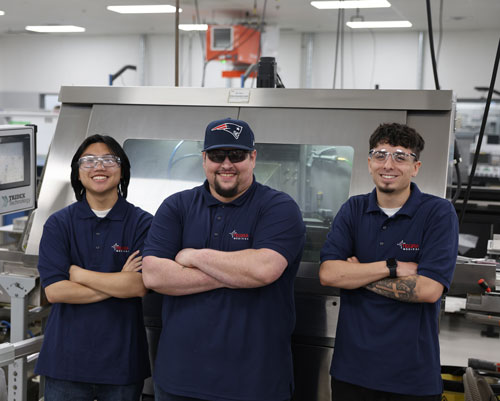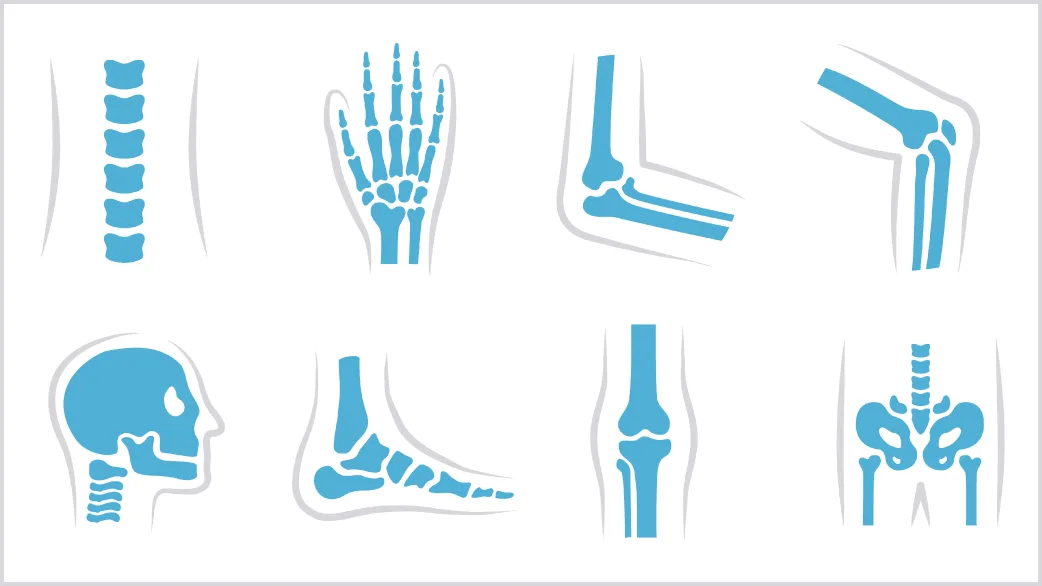Whether you need manufacturing for a new component or device or are seeking a new manufacturer for an existing product, you’ll want to find the right contract manufacturing organization (CMO) to help refine your design and find the most efficient way to make it. The best CMO partner can help you bring your devices to market cost effectively by focusing on improvement and innovation, embracing automation, and managing supply chain risks effectively.
Choosing an End-to-End CMO
Ideally, you’ll want to choose a CMO that can handle the entire process from development to full production and packaging. A CMO with experience with both metal and plastic can help meet your stringent requirements for components, assemblies, and finished devices.
Key Capabilities to Look for in an End-to-End CMO
- Design for Manufacturing (DFM): Cost-effective, scalable refinement of product designs
- Prototyping: Getting products into clinical trials or production sooner
- Pilot Production: Low-volume manufacturing under tight deadlines
- Full-scale Production: Manufacturing ramp-up and production
- Assembly & Automation: Full device assembly
- Packaging and Sterilization: Complete packaging and sterilization management
It’s easier to work with a single manufacturing partner that can handle the entire process from development to full production and packaging. A supply chain team that oversees all the logistics and operations can increase efficiency, reduce costs, and minimize risks.
A CMO product development service such as Tegra Medical’s GENESIS Tech Center (GTC) can help ensure the success of your product launch. GTC offers the following services to ensure an end-to-end experience:
- Refining Your Design. GTC engineers work in partnership with you to shorten the development cycle and identify ways to reduce costs.
- Prototyping. GTC then helps establish a manufacturing process using the same equipment for prototype as production so that scale-up to launch is seamless.
- Pilot Production. Finally, GTC pilot-produces components or finished assemblies with complete documentation and traceability.
Adopting Strategic Manufacturing Processes
Lean manufacturing principles, combined with the strategic use of manufacturing cells, form the foundation for cost-effective production. By focusing on waste reduction, streamlined workflows, and efficiency, you can significantly lower production costs while maintaining quality standards.
Manufacturing Cells. Manufacturing cells are a production strategy that groups machines and workstations in close proximity to focus on the efficient production of specific parts or products. Designed to support lean manufacturing principles, cells often follow a U-shaped layout, enabling seamless workflow and reducing material handling time. By organizing processes into these dedicated areas, manufacturers can minimize waste, enhance quality, and improve throughput. This approach is particularly beneficial for producing in small to medium batches, as it reduces setup time and fosters flexibility, making it easier to adapt to changing production needs.
For example, a top orthopedic OEM wanted to expand its arthroscopic surgical shaver blade line. Tegra Medical proposed the concept of the “shaver cell” for this particular product. Cell manufacturing gave Tegra Medical the ability to find and prevent defects much faster because the parts are all produced within one shift. Furthermore, manufacturing automation in the shaver cell reduced costs and enabled quicker, more consistent turnaround.
Robotic Process Automation. The adoption of robotic process automation (RPA) can aid in achieving precision, speed, and scalability. For example, robots can handle micro-assembly with precision and automated systems can identify defects faster and more accurately than manual inspections. Robotic systems can also support packaging and labeling, reducing errors and improving throughput.
RPA delivers cost savings in reduced labor costs, increased production capacity, and minimized errors, and ultimately helps you meet increasing customer demands.
Ensuring a Resilient and Compliant Supply Chain
Supply chain disruptions can severely impact production timelines and costs, as well as compliance. A CMO partner who has adopted proactive strategies can safeguard operations.
- Diversified Sourcing. Partnering with multiple suppliers for critical components mitigates risks associated with single-source dependencies. This is especially important for raw materials subject to global shortages.
- Inventory Management. Maintaining strategic reserves of essential components ensures production continuity during supply chain interruptions.
- Teamwork. Regular communication among project teams from both companies and shared data can help identify potential problems so corrective actions can be implemented quickly.
Your CMO should partner only with suppliers that are ISO 13485-certified and adhere to FDA QSR regulations. Working with compliant suppliers helps OEMs avoid costly delays, reduce the risk of non-conformities, and streamline approvals in global and U.S. markets. Moreover, it ensures that all materials, components, and processes meet strict regulatory requirements, safeguarding the integrity of the final product and protecting patient safety.
When you partner with Tegra Medical, we’ve got you covered. You can keep costs low, while delivering high-quality, compliant products to market on time. This will help you stay competitive in the rapidly evolving medical device industry. Contact us to get started.



